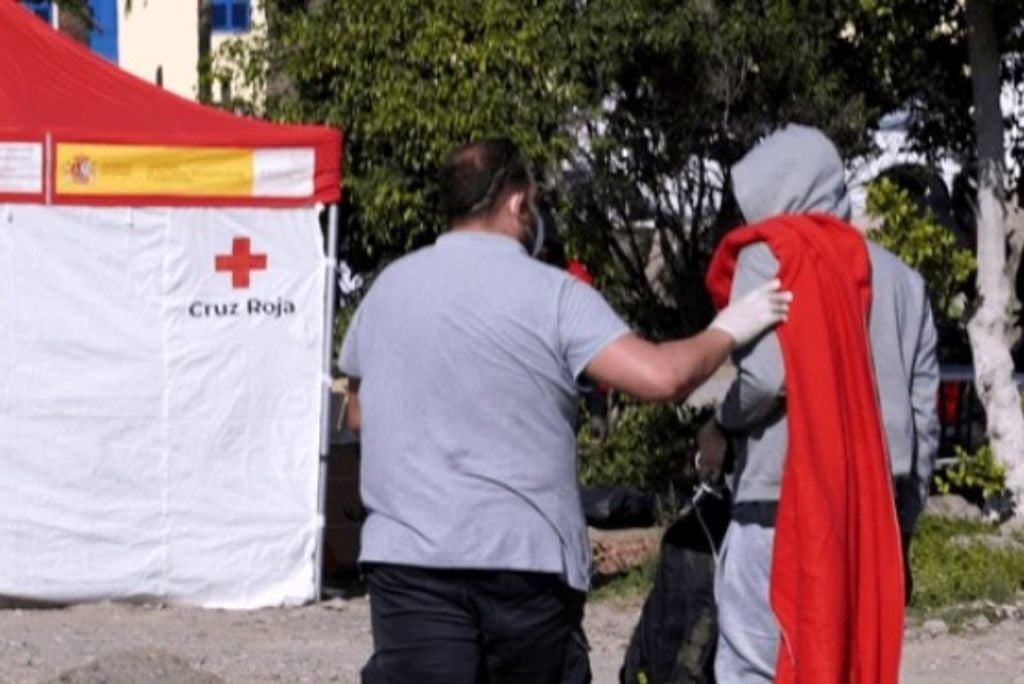Politics
Illegal immigration crisis and escalating robbery in Spain 2025: 14,545 expulsion orders, 310,289 thefts, and a 6% increase in violent crime
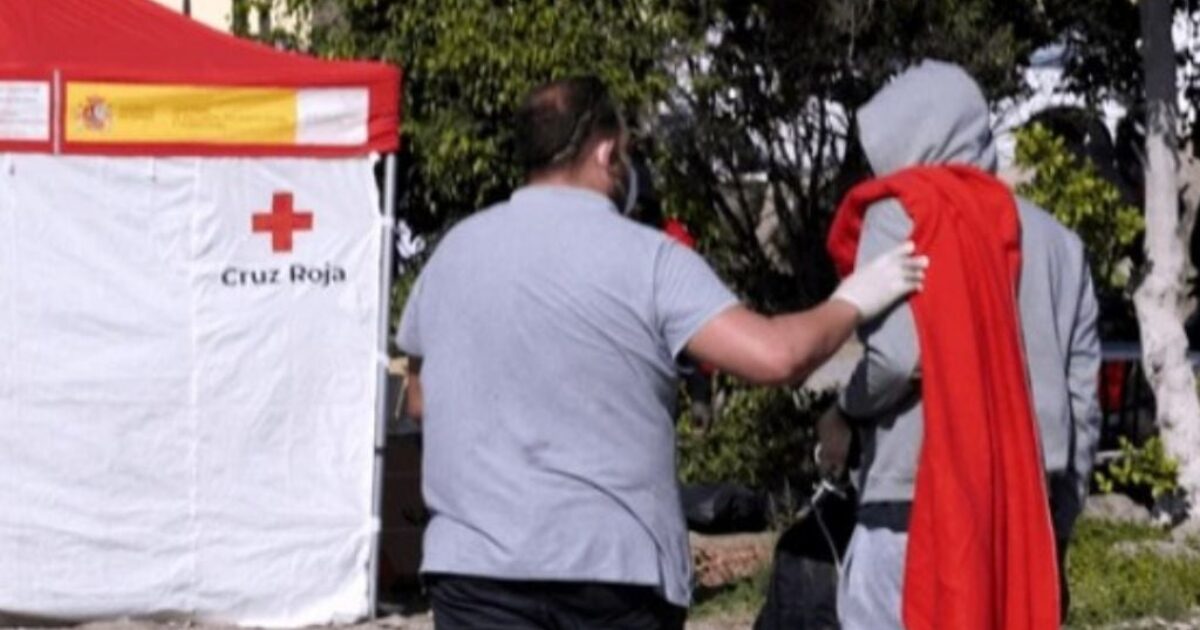
Politics
Trump Announces That India Will Stop Purchasing Oil from Russia
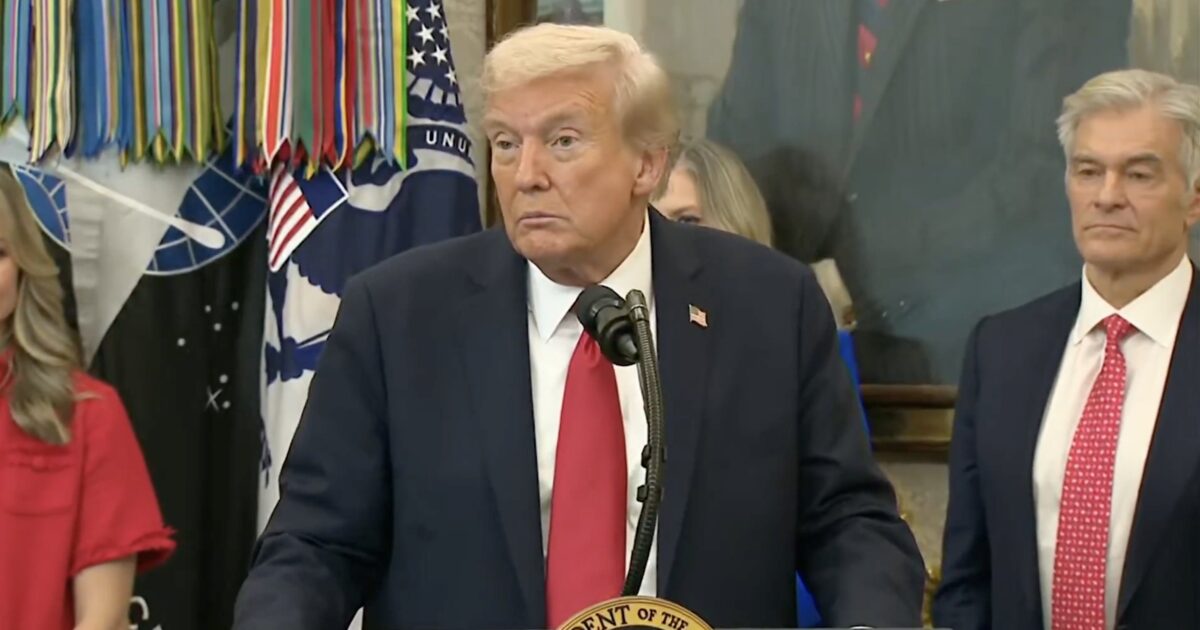
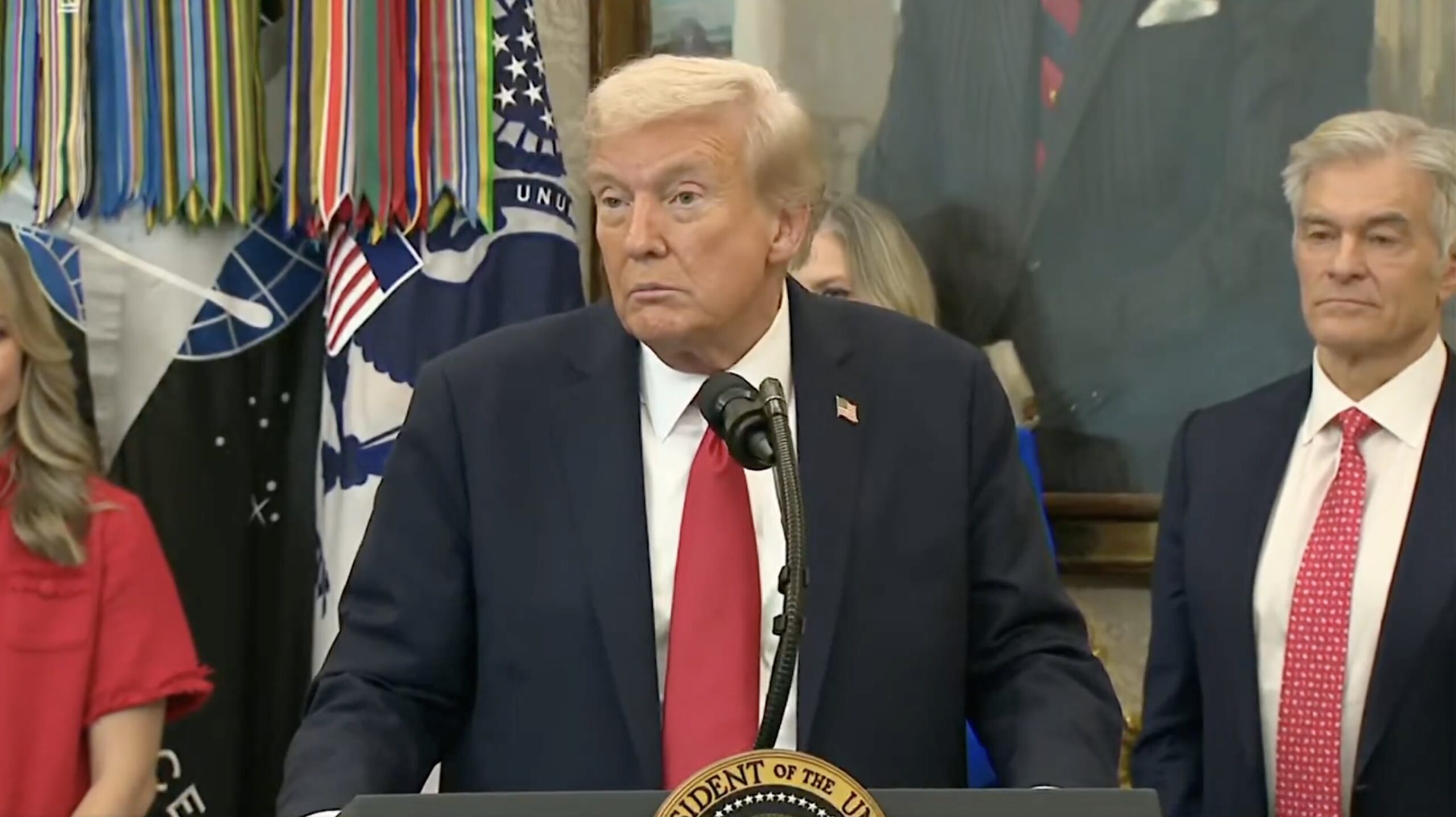
President Donald Trump announced Friday that India has agreed to stop buying Russian oil.
Trump made the announcement during a joint press conference with Ukrainian President Volodymyr Zelenskyy.
“India is not going to be buying Russian oil anymore, and Hungary is sort of stuck, because they have one pipeline, it’s been there for years and years and years, and they’re inland — they don’t have sea,” he said.
Trump added, “But India will not be buying oil from Russia.”
.@POTUS: “India is not going to be buying Russian oil anymore, and Hungary is sort of stuck because they have one pipeline… and they’re inland — they don’t have sea… but India will not be buying oil from Russia.” pic.twitter.com/KXpUBejIvU
— Rapid Response 47 (@RapidResponse47) October 17, 2025
The move is part of Trump’s ongoing effort to isolate Russia economically as he pushes for a negotiated peace between Moscow and Kyiv.
The president said he and Zelenskyy also planned to discuss a deal for weapons that would allow Ukraine to strike targets deep inside Russia.
Trump also said he is still confident that Russian President Vladimir Putin can be persuaded to end the conflict.
“Hopefully we’ll be able to get the war over with without thinking about Tomahawks,” Trump said.
Trump: “hopefully we’ll get the war over with without Tomahawks” pic.twitter.com/YCYDZdoBJa
— Azeb Wolde-Giorghis (@AzebWG) October 17, 2025
Trump said his upcoming meeting with Putin in Hungary will be a one-on-one session, but that the U.S. will remain in close contact with Zelenskyy throughout the process.
The president has made ending the war in Ukraine a top foreign policy goal since beginning his second term in January.
Friday’s statement signals a potential turning point as Trump leverages his position against Moscow amid a slew of foreign policy wins.
Trump has consistently said that peace in Eastern Europe requires economic pressure and direct engagement with world leaders.
The White House did not immediately release any details about the agreement with India.
This article appeared originally on The Western Journal.
The post Trump Announces That India Will Stop Purchasing Oil from Russia appeared first on The Gateway Pundit.
Politics
Exclusive: Syria’s Kurdish Region’s Ongoing Conflict with an Extremist Regime
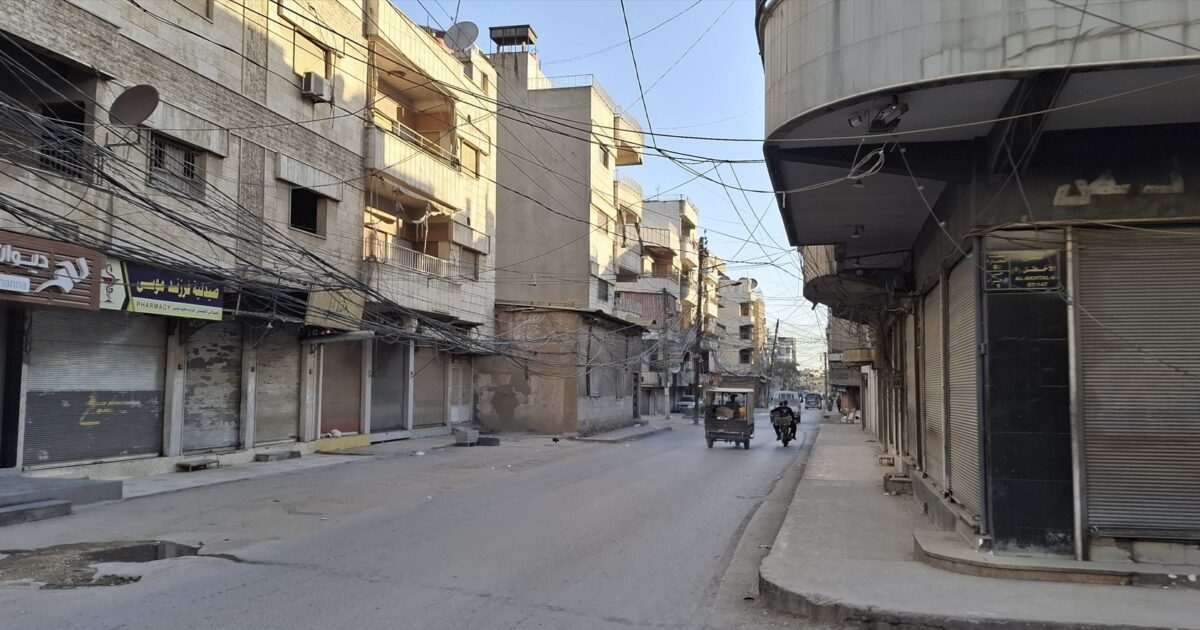
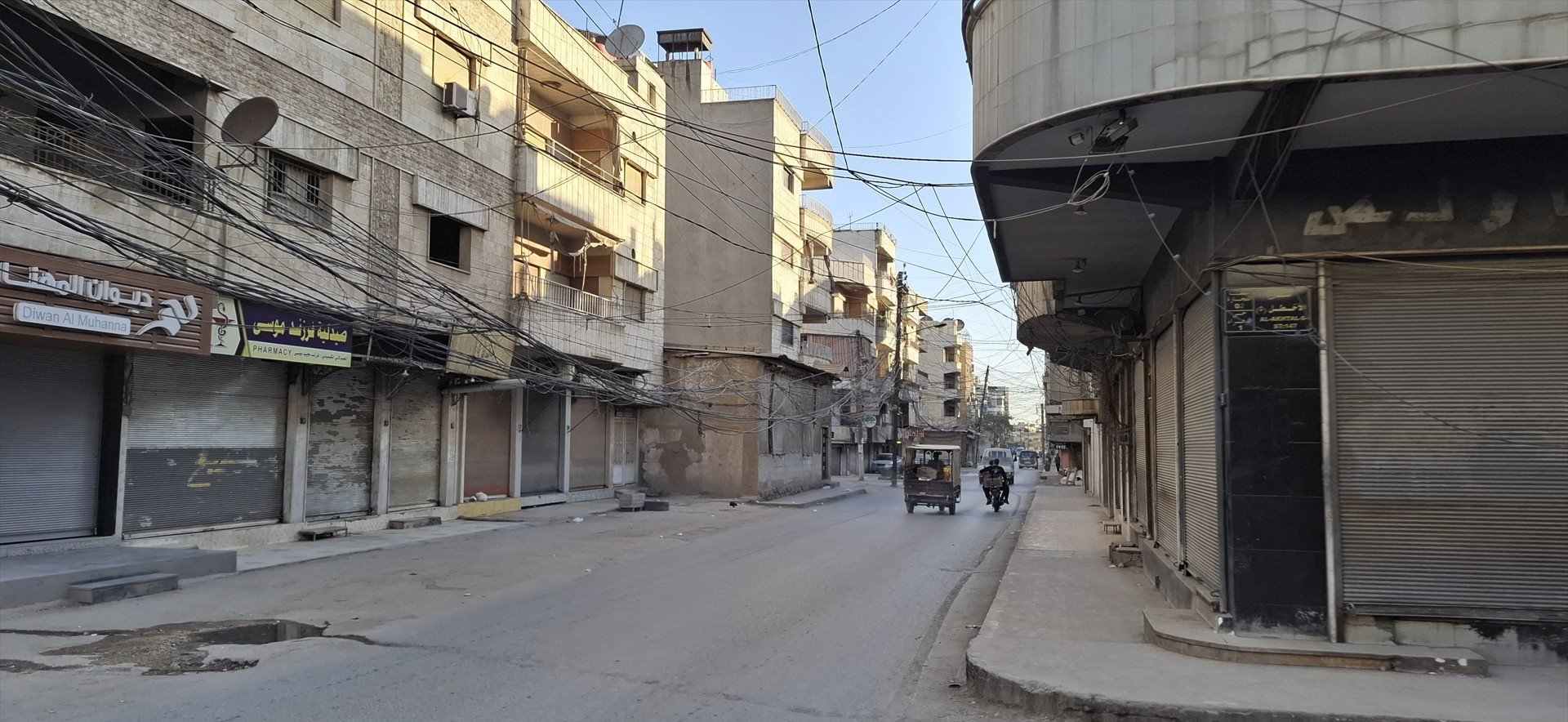 Qamishli, the largest city in Rojava, Autonomous Administration of North and East Syria (AANES), Syria. Photo by Antonio Graceffo.
Qamishli, the largest city in Rojava, Autonomous Administration of North and East Syria (AANES), Syria. Photo by Antonio Graceffo.
When you cross the border from Iraqi Kurdistan into the Kurdish autonomous region of Syria, called Rojava, formally the Autonomous Administration of North and East Syria (AANES), the decline in economic development is immediately noticeable. Iraqi Kurdistan has statutory autonomy, supported by the United States, and today it has its own government and military forces.
The last few years of stability and peace, particularly since the defeat of ISIS, have created a stronger investment climate, and residents have seen their quality of life increase dramatically. On the Syrian side of the border, however, the people of Rojava, including Kurds, Christians, Arabs, and other minorities, continue to struggle with ongoing violence from multiple fronts: the Damascus government, Turkey, ISIS, and other extremist cells that still launch attacks on a regular basis.
Of all the problems faced by Rojava, the main issue is the conflict with the central government in Damascus. If that conflict were settled, Damascus would likely reject Turkish interference, and the two governments could potentially cooperate to stamp out extremism. However, the Damascus government excludes Kurdish representation, actively works against Kurdish interests, and sponsors attacks on people in the Kurdish region.
The country’s new leader, Ahmad al-Sharaa, also known as Abu Mohammad al-Julani or Abu Mohammad al-Golani, who seized power in a coup in December, rose to prominence through his ties to extremist movements. He had previously broken away from ISIS and founded the al-Nusra Front (Jabhat al-Nusra), which pledged allegiance directly to Ayman al-Zawahiri, the leader of al-Qaeda Central.
His government now includes members of various extremist factions, many of which formed a coalition under Hayat Tahrir al-Sham (HTS) to overthrow Bashar al-Assad, whose family had ruled Syria for more than five decades.
Since seizing power, the al-Sharaa government has been implicated in two large-scale massacres targeting religious minorities. The first, in early 2025, occurred in Alawite villages along Syria’s western coast, where Islamist militias aligned with the new regime reportedly killed more than a thousand civilians in a campaign of retribution.
Months later, in July 2025, security forces and HTS-affiliated fighters carried out another massacre in the southern Druze province of Suwayda. Amnesty International and other human rights organizations reported that dozens of Druze civilians, including women, were executed in their homes, schools, and hospitals, while other reports placed the death toll in the hundreds.
“We are living a temporary life,” says Rokken Hussein, a Kurdish woman weary after 12 years of continuous war. First came the Syrian civil war, then ISIS, and now the HTS government. “Under Assad we had political problems, but we were safe,” she recalls. Under every evolution that followed, including the current one, their physical safety has steadily deteriorated.
Turkey also plays a significant role in the suffering of the people of Rojava. Ankara, the Turkish capital, does not want to see Syrian Kurds gain too much autonomy or economic development, viewing such progress as a threat that could inspire greater resistance among Kurds inside Turkey.
In addition to Kurds, Christians and other minorities in Rojava face attacks from extremist groups and ongoing clashes with the Damascus government’s army, while also being periodically bombed by Turkish forces.
Apart from the threats to their physical safety, residents of the region also suffer severe economic hardship. For the first forty-five minutes after crossing the border, one sees miles of unfinished apartment blocks and abandoned construction sites. According to Rokken Hussein, the reason is that commodity prices have risen so sharply that completing the projects is no longer profitable. Combined with a strong U.S. dollar and a plummeting Syrian lira, these conditions have disrupted every aspect of life in Rojava.
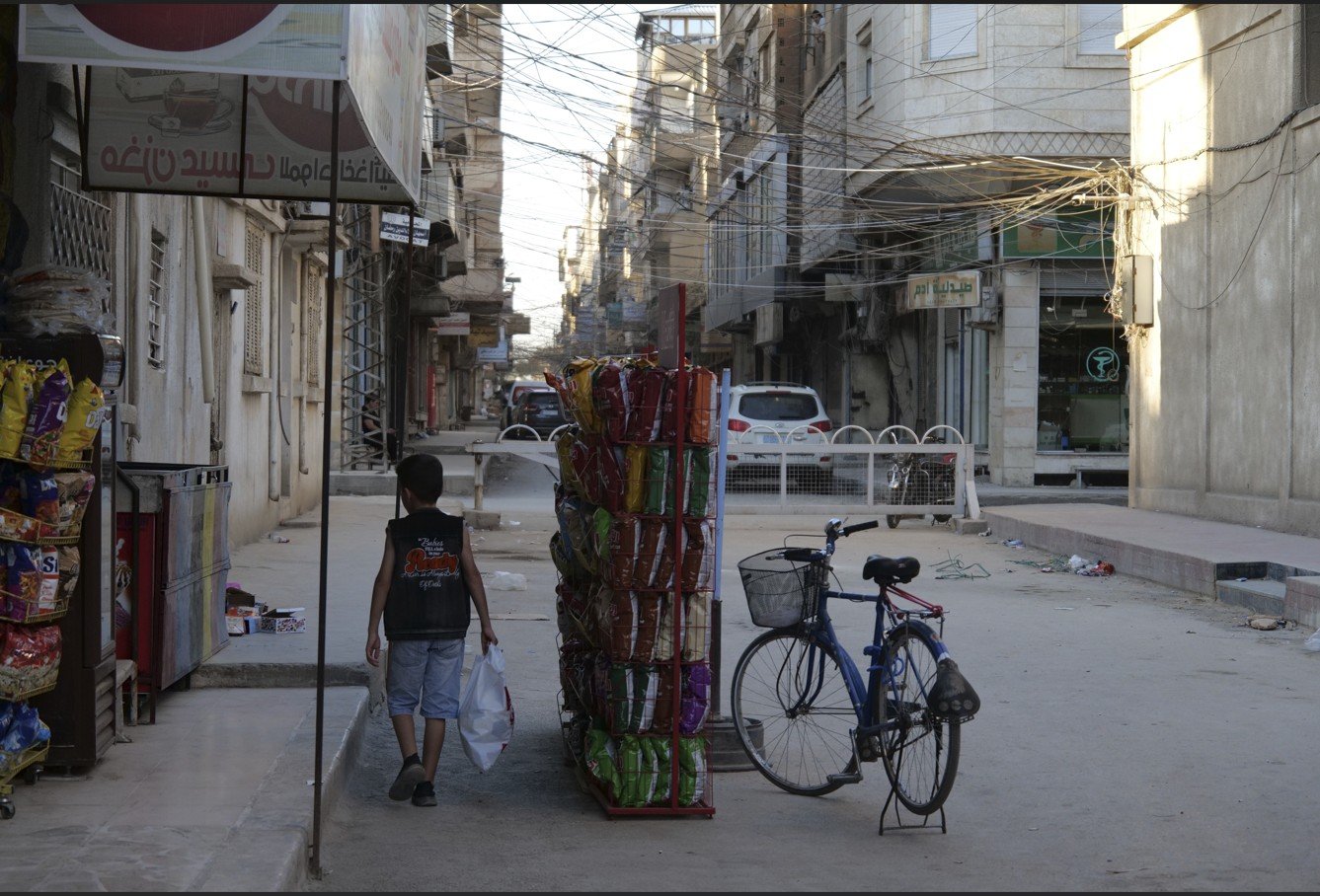 Qamishli, the largest city in Rojava, Autonomous Administration of North and East Syria (AANES), Syria. Photo by Antonio Graceffo.
Qamishli, the largest city in Rojava, Autonomous Administration of North and East Syria (AANES), Syria. Photo by Antonio Graceffo.
Rokken tells me, “Before the revolution, it was 45 lira to the dollar.” Now it is eleven hundred. Before the war, her father earned a salary of 20,000 lira per month, enough to support the family and even send three daughters to university. “He sent each of us 3,000 lira, and we were able to survive. Today, two cups of coffee cost 3,000.”
During this period of extreme inflation, wages have not kept pace. Most citizens now earn the equivalent of $100 or less per month. “It’s enough for one week,” she said, “and then what will you do the other three weeks?”
In local culture, it is customary for adult children to continue living with their parents, so a family may have four or five wage earners until the parents retire. Even so, with apartments renting for $50 to $300 a month, the cost of living remains high compared to wages. Products are expensive because almost nothing is produced in Rojava. Most goods are made in Turkey and imported through Iraq. Meanwhile, salaries in Iraqi Kurdistan are three to four times higher than in Syria.
The air quality is also terrible in the border area and in the de facto capital city of Qamishli. According to locals, this is because although Rojava has large oil reserves, it lacks the technology to refine the oil into standard-grade gasoline. As a result, cars run on low-quality fuel filled with impurities.
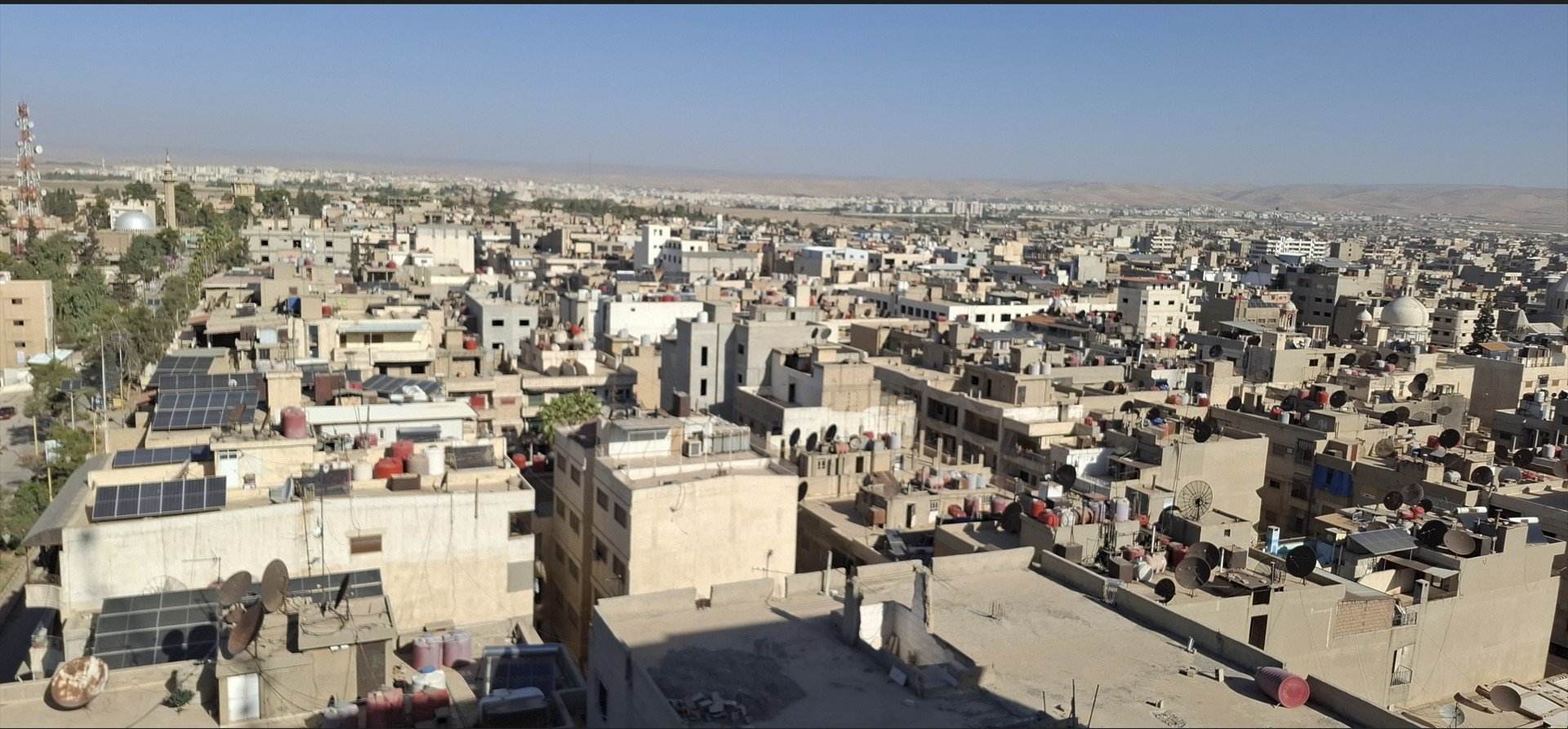 Qamishli, the largest city in Rojava, Autonomous Administration of North and East Syria (AANES), Syria. Photo by Antonio Graceffo.
Qamishli, the largest city in Rojava, Autonomous Administration of North and East Syria (AANES), Syria. Photo by Antonio Graceffo.
Rokken Hussein told me that she usually buys gasoline and lets it sit for several days before using it, allowing the sediment to settle at the bottom of the container. “One time, I just bought gas and used it. The next day, the car broke down,” she said. Using the dirty fuel that one time cost her $700 in repairs.
Electricity and water are also in short supply. In late 2024, Turkey launched airstrikes on infrastructure in northern Syria, damaging dams, power plants, and irrigation networks and leaving large areas without municipal electricity or water.
According to locals, Rojava once relied on hydroelectric plants, but those have been disabled. “When they destroyed one plant, the planes came back and blew up a second one shortly after,” says Rokken Hussein. Now there is no municipal electricity; neighborhoods and homes depend on generators, which require fuel, cost money, and worsen air pollution.
Water shortages stem largely from Turkish upstream control of the Euphrates and other rivers. Turkey has been accused of deliberately reducing water flows by dam operations, limiting how much water reaches northeastern Syria, and undermining local water access and agriculture.
Despite being rich in resources and producing a large surplus of grain that the country depends on, the Damascus government has blocked investment and neglected to develop Rojava. In addition to lacking other government services, the region has no state-run universities. Several institutes have been created by the local administration, but none are officially recognized. Consequently, students must travel to other parts of Syria to continue their education.
During the ISIS period, the government in Damascus required students from Rojava to attend universities located in ISIS-controlled areas. Students who graduated from high school and applied for university placements were sometimes assigned to study in Hasakah, then under ISIS control. “Many Arabs, Christians, Kurds, and Yazidis were afraid to go there because it was 2013 and ISIS was starting its recruiting,” explained one resident.
“Now people are still afraid to go, not only because of ISIS but because of the government. The government isn’t disciplined, some areas are controlled by groups outside its authority. If you go there and disappear, who will come asking for you?”
She added, “We do not have close relations with this new government. Even if you tried to ask about someone, you wouldn’t be speaking to the government, but to one of these groups. So people disappear, and no one knows where they’ve gone. The situation is unstable, but people here are tired of it. During the time of ISIS, it was the same. Even I didn’t go to Damascus, because they could accuse me of supporting journalists who were against them. Now it’s the same. We cannot go to Damascus, even though it’s the capital of Syria and a beautiful city. It’s such a shame that we cannot go there.”
“I think the only friend we have is the Americans,” said Rokken Hussein. “Even during the time of ISIS, if we saw the Americans, we knew we were safe.” She explained that when people in Rojava saw American trucks driving through, they felt secure because they knew Turkey wouldn’t bomb them.
“The war against ISIS was our people dying on the ground and America supporting from the air,” she recalled. Speaking about the Americans’ role today, she added, “They are the middlemen between the U.S. and this new government.”
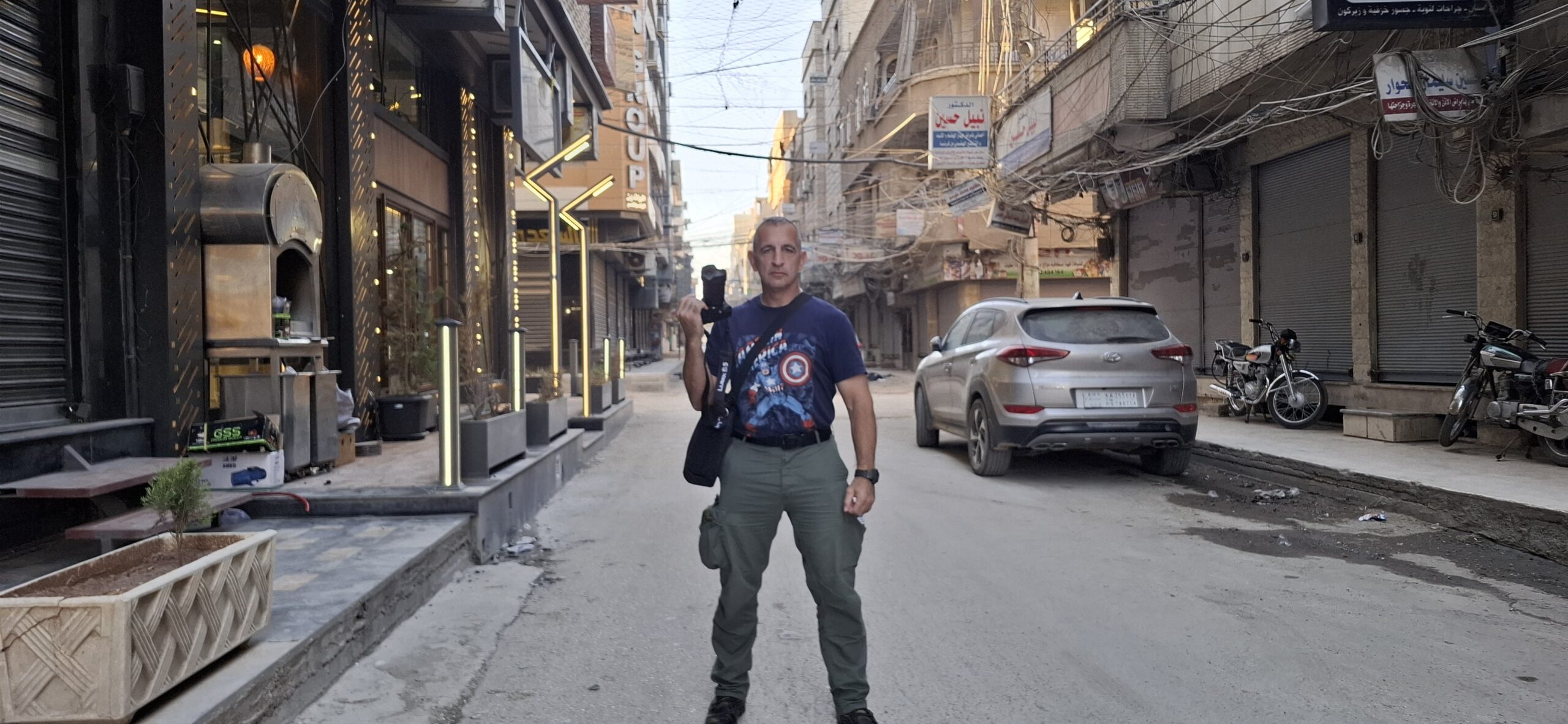 Antonio Graceffo reporting from Rojava, Autonomous Administration of North and East Syria (AANES), Syria.
Antonio Graceffo reporting from Rojava, Autonomous Administration of North and East Syria (AANES), Syria.
The post Exclusive: Syria’s Kurdish Region’s Ongoing Conflict with an Extremist Regime appeared first on The Gateway Pundit.
Politics
Top US Commander for Latin America and Reported Critic of Strikes Against Venezuelan Drug Boats Abruptly Announces Resignation – War Secretary Pete Hegseth Responds
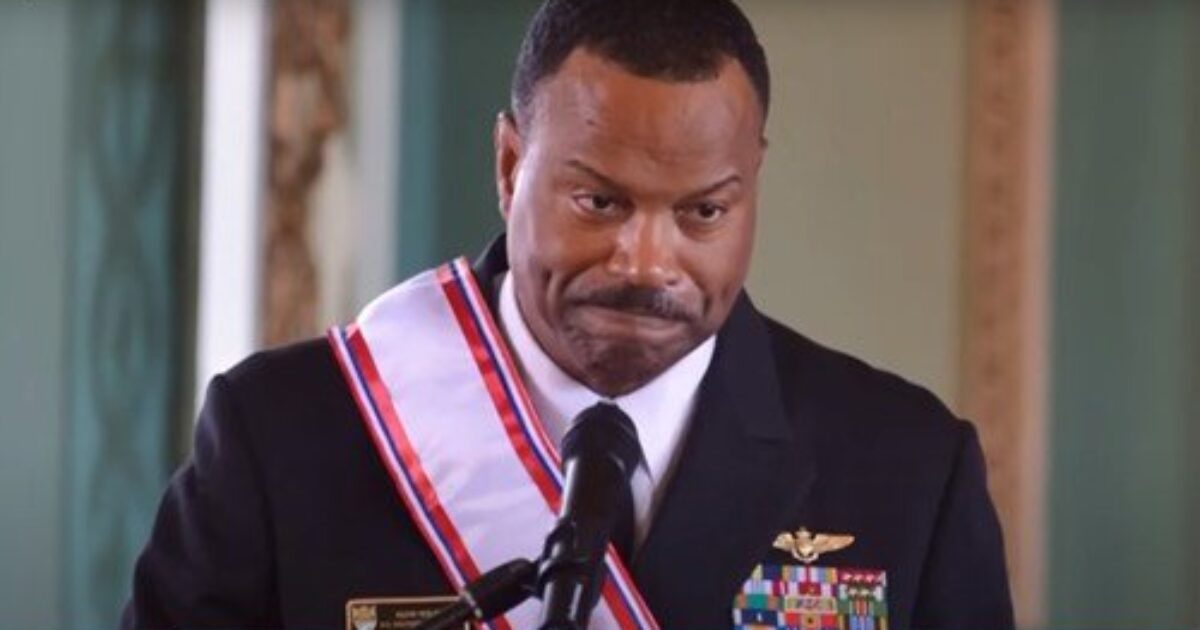
Photo of Navy Admiral Alvin Hosley, the former Head of US Command in Central America. Credit: MSNBC News YouTube screenshot
Secretary of War Pete Hegseth has lost a team member who was playing a critical role in combating narcoterrorists in the Caribbean following a stunning resignation.
As The Daily Mail reported, Navy Admiral Alvin Holsey, the Head of US command in Central America, announced on Thursday that he would leave his post in December, two years before his three-year contract expires. On November 7, 2024, two months before the end of the Biden regime, Holsey was promoted to command USSOUTHCOM.
At the time of his resignation, Holsey had been overseeing the strikes against Venezuelan cartel boats in the Caribbean.
“Serving as your commander and deputy for the past 34 months has been a tremendous honor,” Holsey said in a statement announcing his decision.
“The SOUTHCOM team has made lasting contributions to the defense of our nation and will continue to do so,” he added. “I am confident that you will forge ahead, focused on your mission that strengthens our nation and ensures its longevity as a beacon of freedom around the globe.”
He did not elaborate on why he was quitting.
But a report from the New York Times indicates that the highly successful and bold bombings of cartel boats from Venezuela played a role.
“One of the U.S. officials, all of whom spoke on the condition of anonymity to discuss personnel matters, said that Admiral Holsey had raised concerns about the mission and the attacks on the alleged drug boats,” the paper reports.
The New York Times also notes that Holsey wondered whether he would be terminated as Hegseth drains the Pentagon swamp.
Hegseth responded to the departure with a classy post on X.
“On behalf of the Department of War, we extend our deepest gratitude to Admiral Alvin Holsey for his more than 37 years of distinguished service to our nation as he plans to retire at year’s end,” Hegseth wrote. “A native of Fort Valley, Georgia, Admiral Holsey has exemplified the highest standards of naval leadership since his commissioning through the NROTC program at Morehouse College in 1988.”
“Throughout his career—from commanding helicopter squadrons to leading Carrier Strike Group One and standing up the International Maritime Security Construct—Admiral Holsey has demonstrated unwavering commitment to mission, people, and nation,” Hegseth continued. His tenure as Military Deputy Commander and now Commander of United States Southern Command reflects a legacy of operational excellence and strategic vision.
“The Department thanks Admiral Holsey for his decades of service to our country, and we wish him and his family continued success and fulfillment in the years ahead.”
On behalf of the Department of War, we extend our deepest gratitude to Admiral Alvin Holsey for his more than 37 years of distinguished service to our nation as he plans to retire at year’s end. A native of Fort Valley, Georgia, Admiral Holsey has exemplified the highest…
— Secretary of War Pete Hegseth (@SecWar) October 16, 2025
As TGP readers know, the US has launched a series of attacks on narcoterrorists trafficking narcotics to the United States.
Earlier this month, PresidentTrump announced the destruction of a vessel, which was carrying a “substantial amount of narcotics,” War Secretary Pete Hegseth said. According to President Trump, that boat was carrying “enough drugs to kill 25 TO 50 THOUSAND PEOPLE.”
Trump also announced multiple strikes on Venezuelan drug boats last month, starting on September 2nd, when the United States executed a strike on a Venezuelan Tren de Aragua boat.
If Holsey opposed these common-sense actions to protect our national security, then good riddance.
The post Top US Commander for Latin America and Reported Critic of Strikes Against Venezuelan Drug Boats Abruptly Announces Resignation – War Secretary Pete Hegseth Responds appeared first on The Gateway Pundit.
-

 Entertainment7 months ago
Entertainment7 months agoNew Kid and Family Movies in 2025: Calendar of Release Dates (Updating)
-

 Entertainment4 months ago
Entertainment4 months agoBrooklyn Mirage Has Been Quietly Co-Managed by Hedge Fund Manager Axar Capital Amid Reopening Drama
-
Tech7 months ago
The best sexting apps in 2025
-

 Entertainment6 months ago
Entertainment6 months agoKid and Family TV Shows in 2025: New Series & Season Premiere Dates (Updating)
-

 Tech8 months ago
Tech8 months agoEvery potential TikTok buyer we know about
-
Tech8 months ago
iOS 18.4 developer beta released — heres what you can expect
-

 Tech8 months ago
Tech8 months agoAre You an RSSMasher?
-

 Politics8 months ago
Politics8 months agoDOGE-ing toward the best Department of Defense ever

